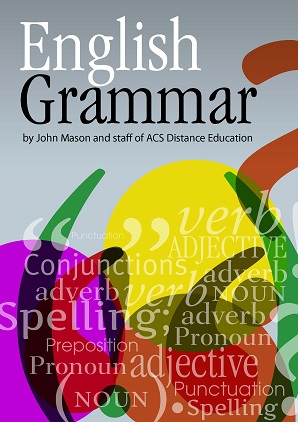
If English is your Second Language; this may be a Course for You!
This course will develop your knowledge of English grammar and your ability to write in English for business and study. The course is aimed at students who can write and speak basic English and wish to strengthen their English language skills, particularly their writing skills. Students will learn by reading the course notes, completing written and spoken exercises for each lesson, and submitting them for comment and correction.